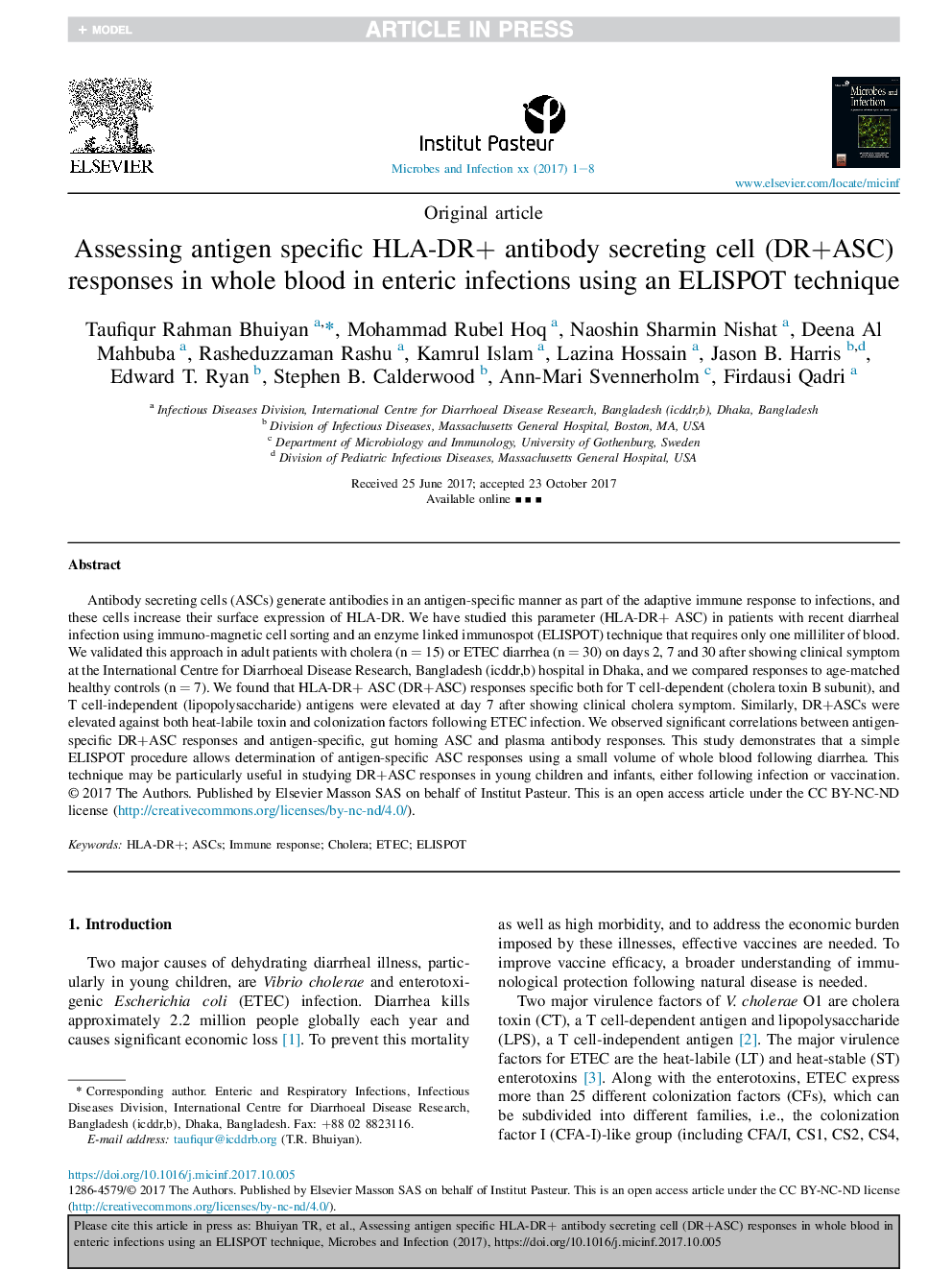| Article ID | Journal | Published Year | Pages | File Type |
|---|---|---|---|---|
| 8749107 | Microbes and Infection | 2018 | 8 Pages |
Abstract
Antibody secreting cells (ASCs) generate antibodies in an antigen-specific manner as part of the adaptive immune response to infections, and these cells increase their surface expression of HLA-DR. We have studied this parameter (HLA-DR+ ASC) in patients with recent diarrheal infection using immuno-magnetic cell sorting and an enzyme linked immunospot (ELISPOT) technique that requires only one milliliter of blood. We validated this approach in adult patients with cholera (n = 15) or ETEC diarrhea (n = 30) on days 2, 7 and 30 after showing clinical symptom at the International Centre for Diarrhoeal Disease Research, Bangladesh (icddr,b) hospital in Dhaka, and we compared responses to age-matched healthy controls (n = 7). We found that HLA-DR+ ASC (DR+ASC) responses specific both for T cell-dependent (cholera toxin B subunit), and T cell-independent (lipopolysaccharide) antigens were elevated at day 7 after showing clinical cholera symptom. Similarly, DR+ASCs were elevated against both heat-labile toxin and colonization factors following ETEC infection. We observed significant correlations between antigen-specific DR+ASC responses and antigen-specific, gut homing ASC and plasma antibody responses. This study demonstrates that a simple ELISPOT procedure allows determination of antigen-specific ASC responses using a small volume of whole blood following diarrhea. This technique may be particularly useful in studying DR+ASC responses in young children and infants, either following infection or vaccination.
Related Topics
Life Sciences
Immunology and Microbiology
Immunology
Authors
Taufiqur Rahman Bhuiyan, Mohammad Rubel Hoq, Naoshin Sharmin Nishat, Deena Al Mahbuba, Rasheduzzaman Rashu, Kamrul Islam, Lazina Hossain, Jason B. Harris, Edward T. Ryan, Stephen B. Calderwood, Ann-Mari Svennerholm, Firdausi Qadri,
